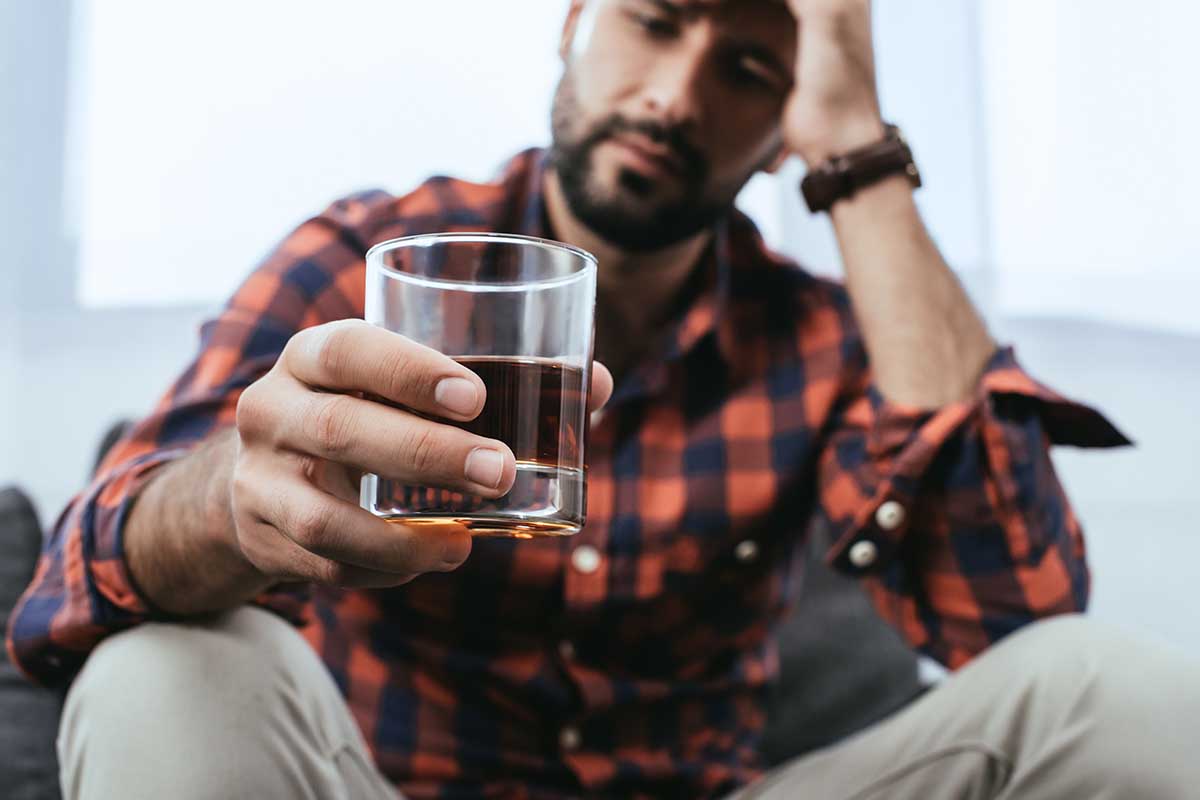How do you know when having a few drinks turns into alcohol abuse? It’s not as easy as it may seem. Quite often, alcohol addiction develops over time. Early warning signs of alcohol use disorder can be spotted, though, especially if you pay close attention to the reasons you’re drinking. If you think you may be developing alcohol use disorder, let our Midwest Recovery Center team offer help right away.
How Does Alcohol Addiction Form?
Alcohol use disorder often begins with routine or consistent consumption. For some, this may begin as binge drinking, which means drinking a large amount of alcohol in a short time. Binge drinking just a few times a month can increase the risk of alcohol addiction. Having a drink or two each day can do the same. Several things occur when alcohol use disorder develops.
The brain seeks out continued access to alcohol because it feels good. This triggers the reward center in the brain and, over time, changes the brain, leading to continued use. As a person drinks, they often need to drink more to get the same results. That’s called tolerance. Dependence forms when the body and brain become reliant on the substance. You may feel pain and discomfort when not drinking. Cravings may be intense as well.
What Are the Early Warning Signs of Alcohol Addiction?
Alcohol addiction early warning signs can be hard to detect. Some of them may include:
- Feeling you need a drink to get through the day
- Needing to drink to deal with stress
- Experiencing headaches, insomnia, or body pain when not drinking
- Drinking during the day, early in the morning, or drinking alone
- Having a hard time controlling how much you are drinking
It is not uncommon for a person to begin feeling withdrawal symptoms early on. For example, you may be agitated or experiencing mood swings when not drinking. You may be thinking about alcohol more often than you used to. These are all indications that dependence is forming.
What Should You Do When You See Alcohol Addiction Symptoms Like These?
Reacting as soon as possible to these symptoms is important. In alcohol rehab, you can stop dependence from forming or stop it sooner. That’s key – when dependence occurs, it is tough to stop drinking without professional help. By reaching out for help sooner, it may be possible for you to get the help you need before conditions worsen.
Turning to a counselor can help you uncover why you are using alcohol as well. This is a good time to learn new stress management strategies. It may also be necessary to deal with past trauma, self-esteem issues, or other addiction causes. Doing this now ensures the best ability to stop addiction from worsening.
How to Get Help for Alcohol Addiction
At any stage in alcohol addiction development, it is possible to get into alcohol rehab in Ohio for immediate help. Doing so can help minimize the onset of health complications while also helping you stop using for good. Our team works closely with you, using a range of therapies to stop this disease’s progression. Early on, you may be able to live at home and receive comprehensive care. Getting help now matters. To do so, learn about our programs as a first step:
- Men’s alcohol treatment
- Women’s alcohol treatment
- Partial hospitalization program
- Intensive outpatient program
- Outpatient treatment program
Trust in a Team Dedicated to Your Best Outcome – Call Midwest Recovery Center
Alcohol addiction is a serious disease, one that can create numerous health consequences. Yet, if you see early signs of alcohol addiction, getting help right away may reduce some of those risks. The right treatment program matters. Learn more by calling Midwest Recovery Center today at [Direct] or connect with us online.


























